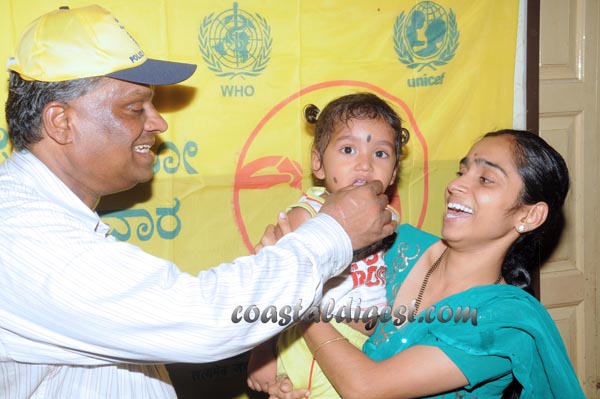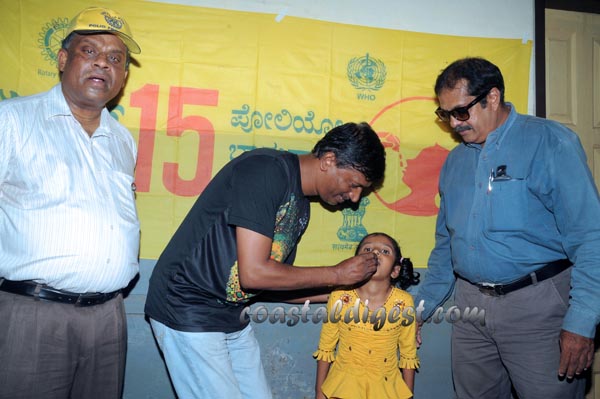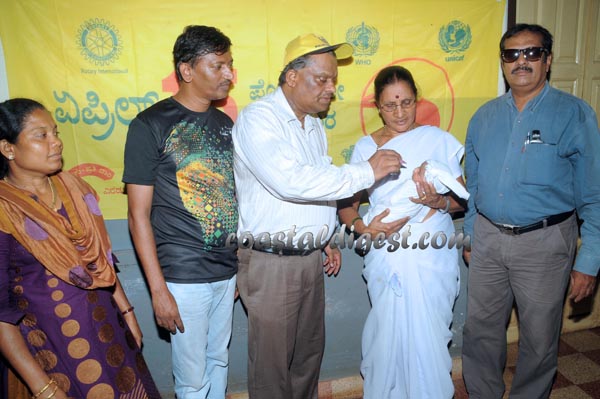Mangalore/Udupi, April 15: The second round of four-day pulse polio drive in twin coastal districts of Dakshina Kannada and Udupi commenced districts on Sunday.
As many as 921 pulse polio booths have been set up in Dakshina Kannada district to administer polio drops to children below five years of age till April 18.
Dakshina Kannada District Health Officer O Srirangappa said that this time the focus will be on children of the migrant labourers dwelling in the district. Mangalore city there are 431 kids of migrant labourers, 287 in Mangalore rural and 200 in Bantwal, according to him.
The DHO said that this year they have set a target of administering polio drops to 1.65 lakh children in the district and the department estimates that there are 1,427 children of migrant labourers in the district. A total of 3,788 volunteers have been appointed for the drive who will have 187 supervisors.
He urged the parents of all the children below five years of age to reach to the centres in the beginning itself to get the drops administered to their children. “For the next two days volunteers will visit homes. I request those living in apartments to allow the volunteers to enter the premises and administer drops to eligible children,” the DHO said clarifying that there are no side affects of taking polio drops.
In Udupi
In Udupi district, as many as 87,404 kids below age of five years in the district will be administered with pulse polio drops in the second round pulse polio programme.
District Health Officer Dr Ramachandra Bairy informed that that as many as 637 booths have been set up for the purpose, of which 476 booths have been set up in rural areas. A total of 2,088 volunteers have been deputed this time.
He said that the department was able to achieve 98.82 percent success in the first round of pulse polio campaign and the biggest challenge before the department is to administer polio drops to the kids of migratory workers, who rarely are brought to the polio booths.
“Parents of these kids lack awareness on child health. Volunteers have to go to the makeshift houses of these migratory workers and administer drops to the kids,” he said and informed that the last polio case that was found in undivided Dakshina Kannada district was in the 1995 in Kundapur.








Comments
Add new comment